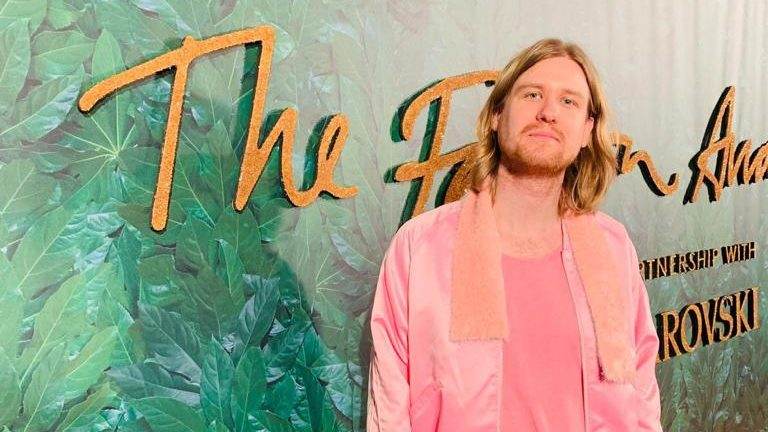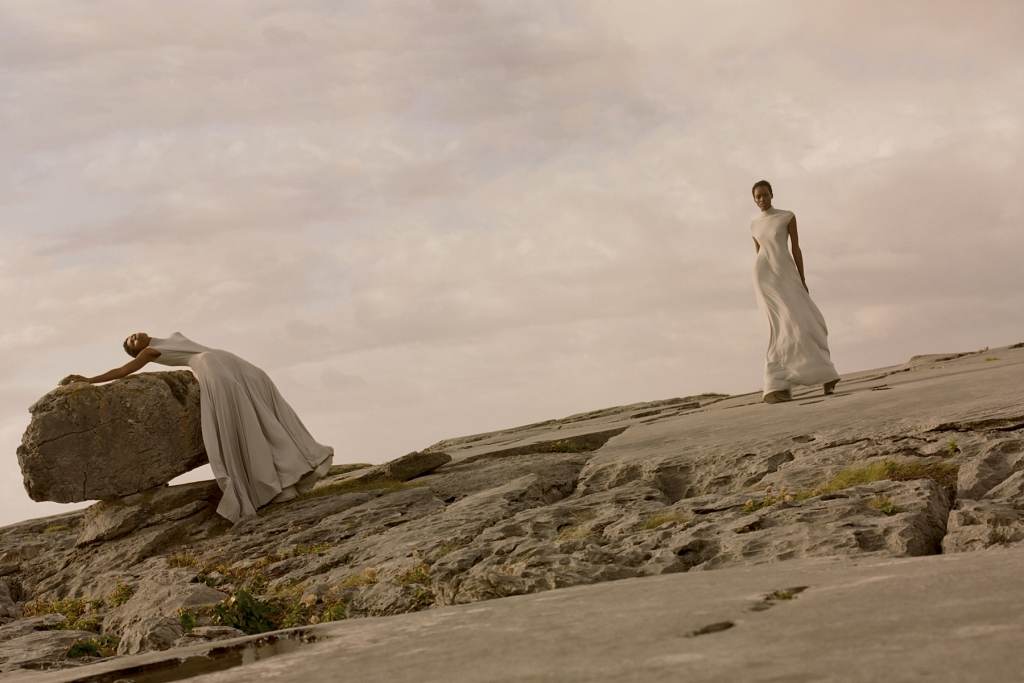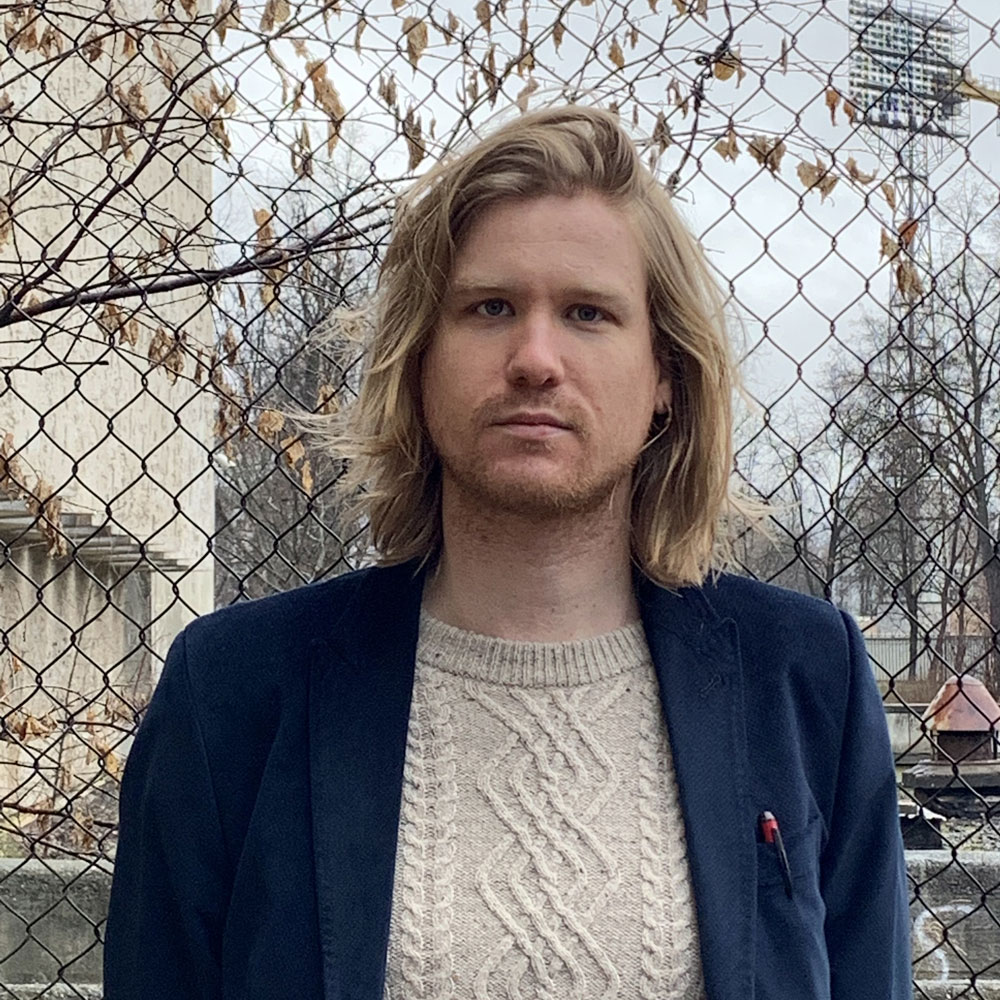
Alastair White is a Scottish composer and writer currently pursuing a Ph.D. in Composition at Goldsmiths, University of London with Roger Redgate. In 2018 he wrote and composed the opera WEAR, an immersive sci-fi opera which combined contemporary music with high fashion and abstract theater; it was described by Mark Berry as “spellbinding…an opera of rare imagination – and success.”
Having originally studied literature at Edinburgh University, he became interested in art music for its revolutionary potential to change how we understand the world, and perhaps even the perceptual apparatus by which we experience it. Past works include multidisciplinary projects with the opera festival Tete-a-Tete, international poetry festival STanza, The Scottish School of Contemporary Dance, The Scottish Poetry Library, and a soundtrack to the feature film Treasure Trapped. He speaks internationally on his research interests regarding the relationship between music and philosophy, and has published poetry, musicology, and theater criticism.
Today, Alastair is our featured artist in “The Inside Story,” a blog series exploring the inner workings and personalities of our artists. Read on to discover Alastair’s love for opera and how it began…
When did you realize that you wanted to be an artist?
During a performance of Billy Budd at the Proms. I think for most folk there is a moment when you see or perceive something and the world seems to almost split apart and rearrange itself, which is a beautiful, terrifying, catastrophic event. I’ve never really gotten over it. I cried all the way home on the underground and the next day sat about re-arranging my life to study music.
Who was your first favorite artist(s) growing up?
As a teenager, bands like Rage Against The Machine, Type 0 Negative, Slayer, Public Enemy, and Slipknot showed me how much music can do: immersive theatricality, delayed gratification, the complex mediation of subjective and group identities, and a form of political discourse that can be both nuanced and impassioned. But the problems with pop music are just too massive. When stripped of its immediate sub-cultural function and lyrical content, these songs sell the individual and the moment: the short-termist hedonism which is (literally!) bringing about the end of the world. Rushes of feeling in isolation, knee-jerk reactions. Right now, we all need to be more than this.
I was in my early twenties doing the whole concept album thing when I discovered the Ring and opera pretty much took over my life: it does everything I loved about rock and roll – great to dance to (see Tannhauser), makes you feel sharply alive – but works those into larger structures as artistic tools for what I suppose is a form of world-building: ways of imagining new realities, of critiquing them, of figuring out how we all fit in. And nothing is simple. Everything takes a lot of work.
What is your guilty pleasure?
ABBA. Contrary to everything I just said. At certain moments they are the greatest, the most profound, and achingly beautiful band.
Is there a specific feeling that you would like communicated to audiences in this work?
This piece was the first result of my research into the relationship between politics, temporality, and subjectivity in contemporary society. Specialization and alienation lead us to perceive time in a series of spaces – or even things – as opposed to a process that we are actively involved in. This radically disempowers us: on one hand we are made to feel that deep, significant change is impossible, that there can be nothing new under the sun; on the other we are disorientated by a course of random, seemingly arbitrary and meaningless events out with our control. This piece tries to sum up such a world in its formal structure, and then use that to imagine ways of overcoming it: by showing how characters – musical, human, or otherwise – can become more than the sum of these arbitrary, externally-given instances. In this, it celebrates the ludic and the performative: the idea that self-creation and fiction have become very powerful tools in a world whose cruelty depends upon our belief in its unchanging reality.
Everyone knows the first rule of late capitalism is that you can’t imagine anything outside it. It sits in our heads, making us cruel, stupid, and unimaginative. Art gives us the opportunity to overthrow it on this individual level.
What was your favorite musical moment on the album?
The quartet is amazing. They haven’t just pulled off an incredible realization of a very difficult piece, they’ve actively interpreted – I think, very thoughtfully – and made it totally their own. But if I had to choose one, it’s what they did in the second of the two “panels”: that’s the point in the piece where there is both a dissolution – a blurring – of the sharp edges of what has come before, an idea which has to be balanced by a clear sense of emerging complex gestures across the quartet. They really bring this tension to life. Ah – and I also love how in the short violin duet there is so much character and conversation – in what are mere single notes. Far, far more theater and subtext than I had ever imagined possible. But then this is why music in particular is such an awesome thing to be involved in: it’s always a collaboration, a community, a conversation. Meaning emerges from systems of notation developed before you were born, played by performers you may never have met. The potential for signification is paradoxically both rigorously defined and limitless. That is so weird, and special.
What was your most unusual performance?
I played in a band that did some really fun gigs – festivals, raves, the Scottish Parliament. My first opera, WEAR, was set as an on-site fashion show outside Central St Martins. I was briefly in a pan-European rap group where one of the guys was dressed as a greenish version of Winnie the Pooh and we performed on what was supposed to be a car made of beer crates.

More recently, I’ve written an opera set in cyberspace to be performed at London’s Tete-a-Tete opera festival: ROBE (www.tete-a-tete.org.uk/event/ROBE). It brings together dance, fashion, music and theater to tell the story of the A.I. EDINBURGH – their desire to become and city and relationship with a young cartographer. It explores the idea that virtual reality has existed since the dawn of time – in technologies such as books, theaters and even clothing – and so attempts to connect the dots between personal experience, public history, and future technologies. I’m so, so excited about it. Being part of something like this is a dream come true.

Two Panels for String Quartet on QUADRANTS VOL 3 is now available for streaming or purchase through Navona Records. Click here to explore this new album.

Alastair White (b. 1988) is a Scottish composer and writer currently pursuing a Ph.D. in Composition at Goldsmiths, University of London with Roger Redgate. In 2018 he wrote and composed the opera WEAR, an immersive sci-fi which combined contemporary music with high fashion and abstract theater; it was described by Mark Berry as “spellbinding...an opera of rare imagination - and success” and has since been shortlisted for a Scottish Award for New Music.
